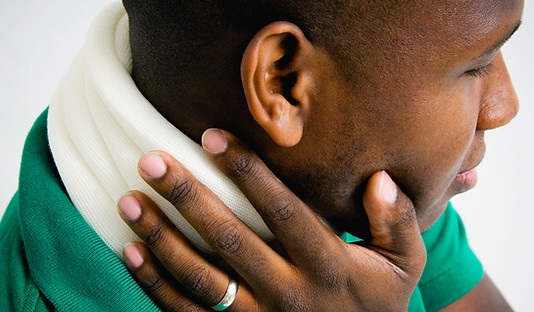Coronavirus highlights black Americans must be protected from surprise medical billing
April 01, 2020
By: Benjamin F. Chavis

(The Hill) — Just a few months ago, the pundit class declared Joe Biden’s presidential candidacy dead after the early nominating contests in Iowa and New Hampshire. Then, they saw what can happen in South Carolina, a state that is truly representative of the Democratic base: rocket fuel.
Fast forward to Wednesday, March 4, and the presidential race turned upside down. Joe Biden swept the south, catapulting to the front of the race. Thanks to black voters in South Carolina igniting the rocket fuel that carried Biden through Super Tuesday — and prominent members of the Democratic Party endorsing him — Biden has become the favorite in this two-person race to capture the nomination and take the fight to Donald Trump in November.
It is clear the black vote will carry significant weight in the upcoming presidential election. The resurrection of Biden’s campaign is simply unprecedented; the country has finally seen the power of our influence. I believe it is time now for our concerns to be taken a bit more seriously by policymakers in Washington, starting with the dramatic challenges associated with the coronavirus pandemic.
This novel coronavirus has shined a spotlight on the health disparities that our black communities face every day. Minority and low-income Americans suffer from a significant lack of access to quality health care. They are also more likely to not have health insurance and are often hit with surprise medical bills they cannot afford. The coronavirus is no different.
Many black Americans will not get tested for coronavirus — whether they have symptoms or not — due to the fact that they cannot easily access medical facilities, and/or they are worried they will not be able to afford the medical services.
Another frightening reality of the coronavirus is loss of a stable income. According to the Bureau of Labor Statistics (BLS), 90 percent of higher-wage earners receive paid sick leave, but only 31 percent of the bottom 10 percent receive paid sick leave. This directly affects the black population, many of which are now out of work due to massive closures. Eight percent of black and Hispanic employees earn wages below the poverty level, compared to 4 percent of White employees.
Nationwide closures and loss of income caused by the coronavirus will force many black families to choose between paying for rent and food or paying for health care. Unfortunately, politicians in both parties are trying to use coronavirus relief legislation to jam unrelated policy proposals through Congress. One such proposal is to include surprise medical billing legislation that puts the cost burden on patients and providers, rather than insurance companies.
Surprise medical bills have been a major problem in the American healthcare system, and for years, politicians have debated how to handle them. A few weeks ago, in his Super Tuesday victory speech, Biden told his constituents that his “bold and progressive agenda” will ensure that there will be “no more surprise medical billing and more access to health care in urban and rural areas.” In delivering that message, he has picked up on an issue that many black leaders, such as the Rev. Al Sharpton, have been focusing on throughout the campaign: Surprise medical billing legislation that is currently in Congress would protect insurance company profits, while threatening healthcare access in urban communities.
Congress is finally recognizing the fact that narrow insurance networks are a key problem that leads to surprise billing. Recently proposed legislation led by Speaker Nancy Pelosi (D-Calif.) included language stipulating “that during the COVID-19 pandemic health care providers should refrain from balance billing consumers for out-of-network claims related to COVID-19 testing or treatment, and insurance companies should do their utmost to secure access to in-network treatment for their plan participants.”
This is a step in the right direction, but I firmly believe that Congress needs to go one step further and not only follow Biden and Sharpton’s lead, but look to the hard work that is being done by the Congressional Black Caucus (CBC) to deliver better policies and health outcomes for African Americans.
black voters showed their enthusiasm, interest and decisiveness in South Carolina, and again on Super Tuesday. Now, it is time for our leaders in Congress to get behind them and protect our health over insurer profits.
Dr. Benjamin F. Chavis, Jr. is President and CEO of the National Newspaper Publishers Association based in Washington, DC. and he regularly comments on public policy issues that impact the quality of life of Black America.
Original article published here on The Hill.
